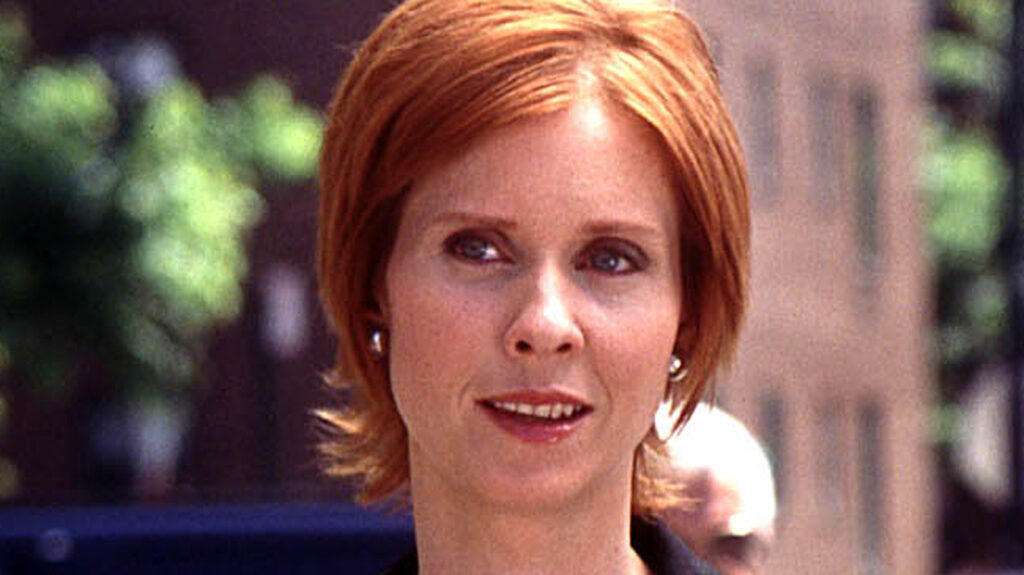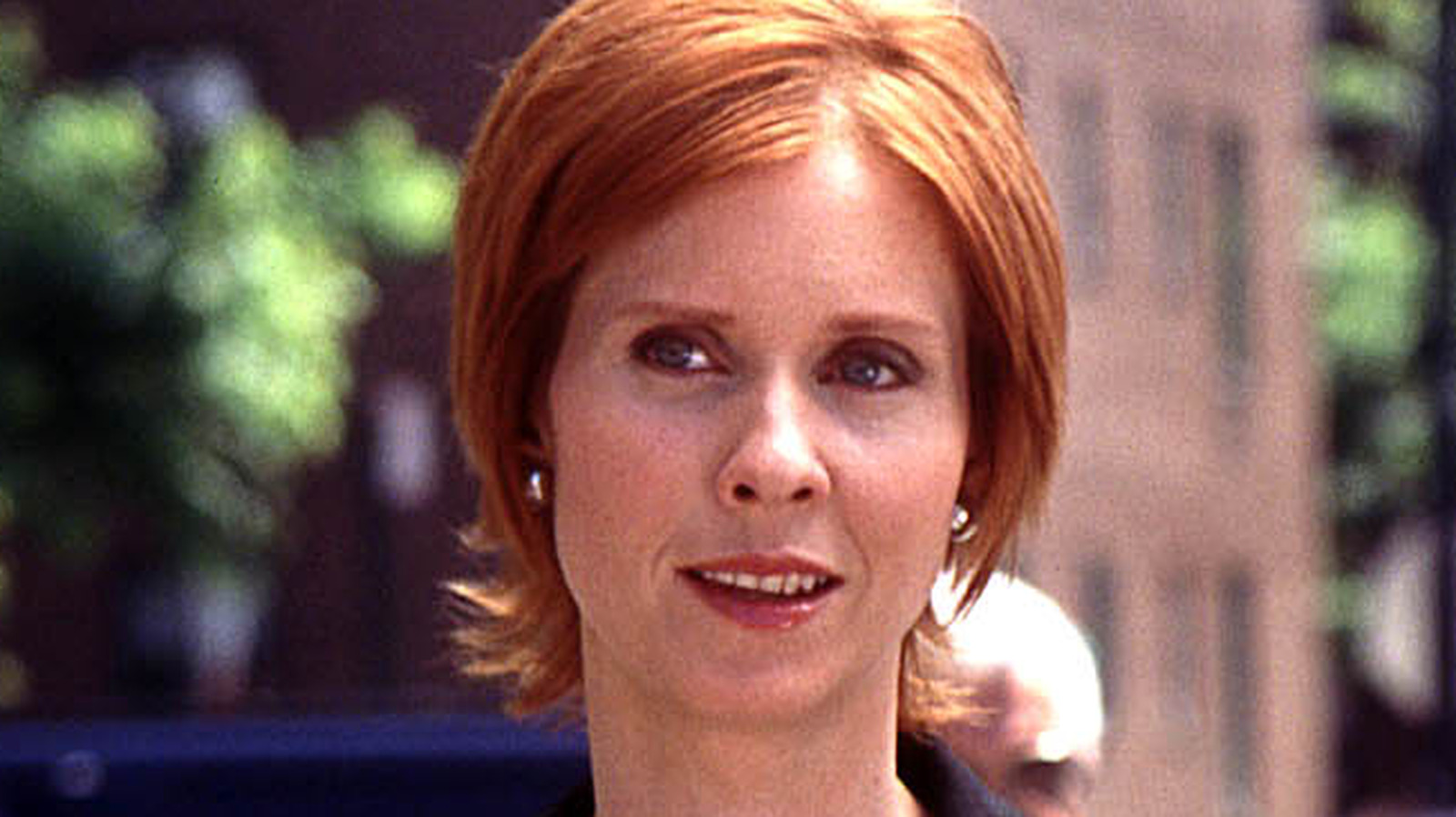
Miranda Hobbes: More Than Just a Cynic in Sex and the City
Miranda Hobbes, portrayed by Cynthia Nixon, is arguably the most relatable and complex character in HBO’s iconic series, Sex and the City. Often perceived as the cynical lawyer of the group, a closer look reveals a multifaceted woman navigating the challenges of career, relationships, and motherhood in a rapidly changing New York City. This article delves into the nuances of Miranda’s character, exploring her evolution throughout the series and its subsequent films and reboot, And Just Like That…, and examining why she resonates so strongly with audiences even today.
The Early Years: Establishing Miranda’s Independence
In the early seasons of Sex and the City, Miranda Hobbes is presented as the pragmatic voice of reason amidst Carrie Bradshaw’s romantic idealism and Samantha Jones’s unapologetic sexual escapades. As a Harvard-educated lawyer, Miranda prioritizes her career and financial independence, often viewing relationships with a healthy dose of skepticism. Her apartment, though smaller than Carrie’s, is a testament to her self-sufficiency – a space she owns and controls. This independence is a defining characteristic of Miranda, shaping her interactions with men and her overall outlook on life.
Miranda’s initial cynicism stems, in part, from her experiences in the dating world. She encounters her fair share of unsuitable partners, highlighting the challenges faced by professional women seeking genuine connection. Her sharp wit and sarcastic retorts serve as a defense mechanism, protecting her from vulnerability. However, beneath the tough exterior lies a deep desire for love and companionship. We see glimpses of this vulnerability when she allows herself to open up to potential partners, only to be disappointed or hurt.
The Steve Brady Factor: A Realistic Romance
One of the most compelling aspects of Miranda’s character arc is her relationship with Steve Brady, a bartender she meets early in the series. Their romance is far from a fairytale; it’s messy, complicated, and often frustrating. Steve is not the stereotypical Prince Charming, but he offers Miranda something she desperately needs: unwavering love and genuine acceptance. Their relationship evolves organically, facing numerous challenges, including unplanned pregnancy and financial struggles.
Miranda’s journey to motherhood is particularly significant. She initially resists the idea of having children, fearing it will derail her career and personal freedom. However, as she navigates the challenges of raising Brady as a single mother, she discovers a new level of strength and resilience. Motherhood forces her to confront her own insecurities and re-evaluate her priorities. Her struggles are relatable to many women who grapple with balancing career aspirations and family responsibilities. Miranda’s character shows how a dedicated lawyer and mother can coexist.
Miranda’s Evolution: Embracing Vulnerability
Throughout Sex and the City, Miranda Hobbes undergoes a significant transformation. She gradually learns to embrace her vulnerability and let go of her cynicism. Her relationship with Steve, despite its ups and downs, teaches her the value of commitment and compromise. She becomes more open to expressing her emotions and allowing herself to be loved. This evolution is evident in her willingness to forgive Steve’s mistakes and ultimately marry him.
In the later seasons and the films, Miranda continues to evolve. She faces new challenges, including career changes and marital difficulties. However, she approaches these challenges with a newfound sense of self-awareness and resilience. She also becomes a more supportive friend to Carrie, Samantha, and Charlotte, offering practical advice and unwavering loyalty. Miranda’s journey is a testament to her growth as a person and her ability to adapt to life’s ever-changing circumstances. The evolution of Miranda from a cynical lawyer to a loving wife and mother is one of the most compelling aspects of Sex and the City.
Miranda in And Just Like That…: A New Chapter
The reboot, And Just Like That…, picks up with Miranda Hobbes in her mid-50s, navigating the complexities of middle age. While some fans have criticized the show’s portrayal of her character, arguing that it deviates from her established personality, it’s important to remember that people change over time. In And Just Like That…, Miranda is exploring new aspects of her identity, including her sexuality and her career aspirations.
Her decision to leave her corporate law firm and pursue a master’s degree in human rights law reflects her desire for a more meaningful career. Her relationship with Che Diaz, a non-binary comedian, challenges her preconceived notions about love and relationships. While these storylines have been controversial, they also highlight Miranda’s willingness to embrace change and explore new possibilities. The portrayal of Miranda in *And Just Like That…* is a continuation of her journey of self-discovery. This character has made missteps, but she has also displayed a willingness to learn and grow.
Why Miranda Resonates: Relatability and Authenticity
Miranda Hobbes resonates with audiences because she is relatable and authentic. She is not perfect; she makes mistakes, struggles with insecurities, and faces real-world challenges. Her career aspirations, her relationship struggles, and her journey to motherhood are all experiences that many women can identify with. Miranda’s character is more than just a cynical lawyer; she is a complex and multifaceted woman who embodies the complexities of modern life. The character’s relatability is a key reason why she remains a fan favorite years after *Sex and the City* first aired.
Unlike Carrie’s focus on fashion and romance, or Samantha’s unapologetic pursuit of pleasure, Miranda offers a more grounded perspective. She is practical, intelligent, and fiercely independent. She is not afraid to speak her mind, even when it’s unpopular. This authenticity is what makes her so endearing to viewers. The character of Miranda stands as a testament to the importance of female friendships and the power of self-discovery. Miranda Hobbes is a character that viewers can empathize with and root for.
Miranda’s journey, from a cynical lawyer to a more open and accepting individual, is a source of inspiration for many. She demonstrates that it’s possible to evolve and grow, even in the face of adversity. Her character serves as a reminder that it’s okay to make mistakes, as long as you learn from them. Miranda Hobbes is not just a character in a television show; she is a symbol of female empowerment and resilience.
Miranda Hobbes: An Enduring Legacy
In conclusion, Miranda Hobbes is more than just the cynical lawyer from Sex and the City. She is a complex and multifaceted character who embodies the challenges and triumphs of modern womanhood. Her journey of self-discovery, her relationship struggles, and her career aspirations resonate with audiences because they are relatable and authentic. Whether you love her or hate her, there’s no denying that Miranda Hobbes has left an enduring legacy on television. Her character continues to spark conversation and inspire women around the world. Her portrayal in *Sex and the City* and *And Just Like That…* has solidified her place as one of the most iconic female characters in television history.
Her journey is a reminder that it’s okay to be flawed and imperfect, as long as you are true to yourself. Miranda Hobbes is a character that viewers can admire and aspire to be like. Her story is a testament to the power of female friendships and the importance of self-acceptance. The character of **Miranda from Sex and the City** has become a role model for many. The character’s authenticity and relatability are what make her so appealing to viewers. Miranda Hobbes is a character that will continue to be celebrated for years to come.
[See also: The Evolution of Carrie Bradshaw’s Style]
[See also: Samantha Jones: A Celebration of Female Empowerment]
[See also: Charlotte York: The Idealist’s Journey to Motherhood]

